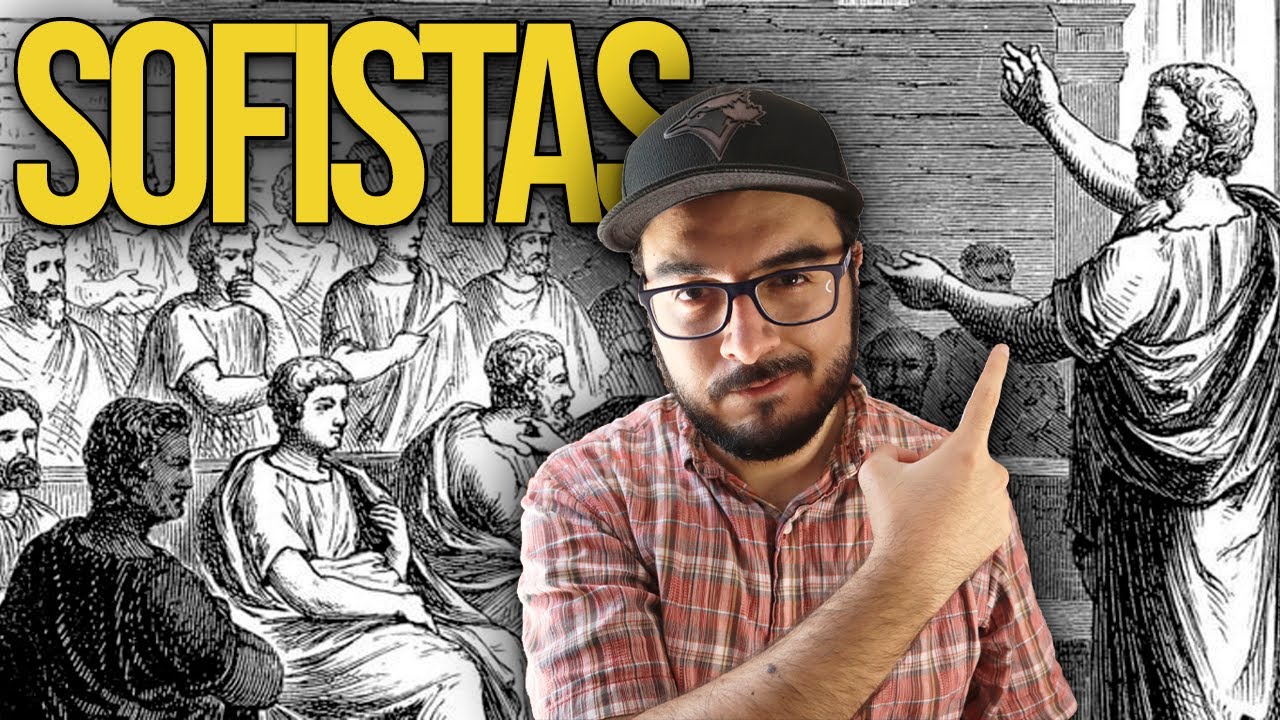LOS SOFISTAS: PROTAGORAS Y GORGIAS - Filosofía Griega - AEDUCACION
Summary
TLDRThis video explores the philosophies of the sophists, specifically focusing on Protagoras and Gorgias. Protagoras, a prominent figure in ancient philosophy, introduced the idea that 'man is the measure of all things,' asserting the relativity of truth. Gorgias, another influential sophist, proposed three key ideas: nothing exists, if something exists, it cannot be known by humans, and even if something exists, it is incomprehensible to others. Their thoughts marked a shift from seeking the origins of the universe to focusing on human experience, influencing the development of relativistic and subjective views on truth.
Takeaways
- 😀 The script discusses the sophists, focusing on two key philosophers: Protagoras and Gorgias.
- 😀 Philosophers moved away from thinking about the origins of the universe and instead focused on human beings during the anthropological period.
- 😀 The sophists were a prominent part of the anthropological period, alongside Socrates.
- 😀 Protagoras, who lived between 480 and 420 BCE, was the first philosopher to be called a 'sophist'.
- 😀 Protagoras taught that truth is subjective, and each individual’s perception is valid. 'Man is the measure of all things'.
- 😀 Protagoras rejected the idea of a universal truth, arguing that there is no absolute truth applicable to everyone.
- 😀 Gorgias, another influential sophist, had three fundamental theses: 1) Nothing exists, 2) If something exists, it cannot be known by humans, 3) Even if something exists and is known, it is uncommunicable to others.
- 😀 Gorgias’s philosophy was influenced by Parmenides' ideas, emphasizing that words cannot represent truth if they cannot directly correspond to the 'being' of something.
- 😀 According to Gorgias, if words represent non-being, they lack truth value, thus preventing humans from reaching the truth.
- 😀 The script concludes with a mention that the next video will cover the great philosopher Socrates.
Q & A
Who were the main philosophers discussed in the video?
-The main philosophers discussed in the video were Protagoras and Gorgias, both of whom were sophists, as well as a brief mention of Socrates.
What is the period referred to as the 'anthropological period'?
-The anthropological period refers to a time when philosophers shifted their focus from questions about the origin and order of things to focusing on human beings and their nature.
What is the main idea behind Protagoras' philosophy?
-Protagoras is famous for his assertion that 'Man is the measure of all things.' This means that truth and reality are relative, dependent on individual perception.
How does Protagoras' view contribute to relativism?
-Protagoras' statement that 'Man is the measure of all things' establishes the foundation of relativism, where truth is subjective and varies depending on the individual’s perspective.
What was Protagoras' stance on universal truths?
-Protagoras believed that it is impossible to find a universal and absolute truth that applies to all human beings, as each person perceives things differently.
What are the three fundamental theses of Gorgias' philosophy?
-The three fundamental theses of Gorgias are: (1) Nothing exists, (2) If something does exist, it is unknowable to humans, and (3) Even if something exists and is knowable, it is incommunicable to others.
How does Gorgias' view relate to Parmenides' concepts?
-Gorgias' views are influenced by Parmenides' philosophy, especially in regard to the idea that if a word is a 'being' (or something that represents truth), it cannot represent a 'non-being' or something that does not exist.
What is the role of language in Gorgias' philosophy?
-For Gorgias, language, or words, are inherently limited in their ability to represent truth. If a word cannot represent something that truly exists, it lacks value in conveying objective truth.
What is the significance of the sophists' focus on human perception?
-The sophists' focus on human perception shifted philosophical inquiry away from universal truths and the cosmos to the individual’s experience, highlighting the subjective nature of truth and morality.
How did the sophists' views contrast with those of Socrates?
-While the sophists, like Protagoras and Gorgias, emphasized relativism and subjective truths, Socrates sought to discover objective truths and believed in the possibility of universal knowledge and ethics through dialectical reasoning.
Outlines

This section is available to paid users only. Please upgrade to access this part.
Upgrade NowMindmap

This section is available to paid users only. Please upgrade to access this part.
Upgrade NowKeywords

This section is available to paid users only. Please upgrade to access this part.
Upgrade NowHighlights

This section is available to paid users only. Please upgrade to access this part.
Upgrade NowTranscripts

This section is available to paid users only. Please upgrade to access this part.
Upgrade NowBrowse More Related Video
5.0 / 5 (0 votes)





